- About
- Academics
- Admissions & Aid
- Life
- Research
- News & Events
- Homecoming
Program at a Glance
Understanding human behavior to impact societal evolution.
Department
Sociology examines the reasons behind the organization of human social behavior and change.
Learn More
Bachelor of Arts in Sociology
Learn More
The major consists of 21 hours of required core courses, three hours of a communication studies course, nine hours of electives, three hours of advanced applications courses, and six hours of capstone courses.
About Sociology
-
Overview
SOCIOLOGY EXAMINES THE REASONS BEHIND THE ORGANIZATION OF HUMAN SOCIAL BEHAVIOR AND CHANGE.
The professional sociologist aims to learn how to anticipate and predict patterns of human group interaction.
Information brought to lighty by sociologists, when systematically and objectively derived, provides knowledge from which enlightened, informed social policies and planning can ensue.
The core curriculum for Morehouse College sociology students is structured to provide a thorough orientation for those interested in sociology and other professional areas. Experience in these courses helps to free the mind from the fetters of traditionalism, fostering critical analysis of the social-scientific context. Students are strongly encouraged to engage in internships, fieldwork, and undergraduate research.
In addition to the major and minor in sociology, the Sociology Department offers a minor in criminal justice and a concentration in the sociology of family and gender. The department also prepares for successful graduate study and employment in sociology, research, and other fields.
Honors and Engagement
Our rich history is exemplified by our students, faculty, and programs. Students majoring and minoring in sociology are eligible for election to the Alpha Kappa Delta International Sociological Honor Society. The department also sponsors a discipline-oriented group, the Morehouse Sociological Association.
Research and Scholarship
The Morehouse Research Institute and the Chivers-Grant Institute for Family and Community Studies are self-supporting research and service units of sociology. These institutes conduct research and develop and manage projects to serve the needs of underserved populations. The institutes also serve as a resource for the research and intellectual needs of students, faculty, and staff from the Atlanta University Center Consortium. Institute staff represent areas such as sociology, psychology, economics, and criminal justice. The institutes recognize outstanding service to the family as an institution through the Family Service and Pacesetter awards and student research awards.
For several decades, Morehouse and Emory University annually host the SouthEastern Undergraduate Sociology Symposium. Alternating its location between Emory and Morehouse, this symposium draws students from colleges and universities across the southeastern U.S.
-
Outcomes
The careers of the department’s graduates include criminal justice, law, social work, environmental planning, policy analysis, gerontology, medical sociology, clinical counseling, public health, medicine, theology, teaching and educational administration, government service, marketing research,
industrial sociology, public relations, diplomatic service, organizational research, and administration in industry or community service organizations.The goals of the sociology department are organized to ensure that students graduating from the department of sociology are prepared to:
- Enter graduate and professional studies
- Use their sociological skills and knowledge to begin careers
- Apply the sociological imagination and critical thinking to everyday life and community concerns
- Demonstrate a global orientation and enhanced awareness, knowledge, and appreciation of the African experience in Africa and the diaspora
-
Earn the Major
Bachelor of Arts in Sociology
CURRICULUM
Major Course of Study Requirements
Sociology prepares students for post-graduate study and careers in a variety of disciplines.
The major consists of 21 hours of required core courses, three hours of a communication studies course, nine hours of electives, three hours of advanced applications courses, and six hours of capstone courses (three hours must be HSOC 495 Senior Seminar in Sociology). Students who major in sociology must meet the college social science requirement by taking six hours of social science courses outside the field of sociology.
General Education (Core)
33-48 hoursRefer to the general education requirements for more information.
Sociology Major
42 hoursThe major curriculum contains four types of courses organized around the four principal goals of the department. Students seeking a degree in sociology must fulfill the requirements for all four types of courses listed below:
I. Sociological Foundations
These courses include basic concepts, ideas, and empirical generalizations that explain society. They do not assume prior knowledge of sociology.
The following course is required:
- HSOC 101— Introduction to Sociology
Choose one course from the list below:
- HSOC 102— Cultural Anthropology
- HSOC 103— Social Problems
- HSOC 156— Men in Society
- HSOC 294— Principles of Sociology
Lower Level Electives (choose one course)
- HSOC 215— Criminology
- HSOC 255— The Family
- HSOC 259— Women in Society
II. Tools and Intermediate Applications
The following courses require successful completion of all sociological foundations coursework:
Communication Studies (choose one course)
- HCOM 253— Public Speaking
- HCOM 351— Professional Communication
- HCOM 354— Intercultural Communication
- HCOM 355— Argumentation and Debate
The following courses are required:
- HSOC 301— Statistics
- HSOC 302— Social Research in Research Methods
- HSOC 307— Social Thought
- HSOC 407— Sociological Theory
Upper-Level Electives (choose two courses)
The following upper-level elective courses assume successful completion of at least one prior social science course:
- HSOC 305— Urban and Community Sociology
- HSOC 316— Corrections
- HSOC 317— Law Enforcement: Global, National, Local
- HSOC 322— Social Inequality
- HSOC 331— Work in a Changing Society
- HSOC 355— Sexuality and Sexual Expression
- HSOC 360— Pan-Africanism as Cross-Cultural Dialogue*
- HSOC 361— African and African Diaspora Families*
- HSOC 414— Political Sociology
- HSOC 415— Juvenile Delinquency
- HSOC 416— Law and Society
- HSOC 422— Race and Ethnic Relations
- HSOC 455— The African American Family
- HSOC 487— Critics of Society
- HSOC 491— Seminar in Social Change
- HPSY 303— Social Psychology
- HAFR 375— Africana Muslims
* Courses designated for the Morehouse Pan-African Global Experience (M-PAGE)
III. Advanced Applications
These courses assume a background in social theory and social research methods. They are designed for students with majors or minors in sociology or related social science and humanities disciplines.
- HSOC 340— Medical Sociology
- HSOC 341— The Life Cycle and Aging
- HSOC 356— Demography, Ecology, and the Environment
- HSOC 403— Survey Research and Data Analysis
- HSOC 460— Sustainability and Development*
*Courses designated for the Morehouse Pan-African Global Experience (M-PAGE)
IV. Capstone Courses
Capstone Courses intend to promote the synthesis of sociology’s various elements as an approach to inquiry and life.
The following course are required:
- HSOC 495— Seminar in Sociology/Senior Project
Choose one course from the list below
- HSOC 492— Criminal Justice Internship
- HSOC 493— Criminal Justice Internship
- HSOC 496— Directed Studies/Mentored Research
- HSOC 497— Departmental Honors/Thesis
- HSOC 498— Internship/Fieldwork in Sociology
- HSOC 499— Internship/Fieldwork in Sociology
COURSE SEQUENCE FOR MAJORS IN SOCIOLOGY
Students majoring in sociology are required to consult with their faculty advisers regularly to develop, assess, and make adjustments to their academic and career plans. This is particularly important for students wishing to concentrate in criminal justice and other meaning areas. The department will offer to consult with their advisees to make sure they are registered for the right electives. Especially in their senior year, majors are encouraged to use free elective hours to pursue independent reading, research, and internship projects, which may or may not be related to their senior paper.
-
Earn the Minor
Minor in Sociology
CURRICULUM
A minor in sociology consists of six hours of required core courses. Students minoring in sociology may satisfy three hours of the college social science requirement with HSOC— 101. Those students only seeking a minor in sociology are not required to take HSOC— 495 Senior Seminar.
Required Core
Students wishing to minor in sociology must take one of the following courses:
- HSOC 101— Introduction to Sociology
- HSOC 102— Cultural Anthropology
- HSOC 103— Social Problems
- HSOC 156— Men in Society
- Students wishing to minor in sociology must take the following course:
- HSOC 294— Principles of Sociology
Students wishing to minor in sociology must take one of the following courses:
- HSOC 294— Social Research Methods
- HSOC 307— History of Social Thought
Electives
Students wishing to minor in sociology must take three of the following courses:
- HSOC 215— Criminology
- HSOC 255— The Family
- HSOC 259— Women in Society
- HSOC 305— Urban and Community Sociology
- HSOC 316— Corrections
- HSOC 317— Law Enforcement: Global, National, Local
- HSOC 322— Social Inequality
- HSOC 331— Work in a Changing Society
- HSOC 340— Medical Sociology
- HSOC 341— The Life Cycle and Aging
- HSOC 355— Sexuality and Sexual Expression
- HSOC 356— Demography, Ecology, and the Environment
- HSOC 414— Political Sociology
- HSOC 415— Juvenile Delinquency
- HSOC 416— Law and Society
- HSOC 422— Race and Ethnic Relations
- HSOC 455— The African American Family
Designated Electives
- HSOC 102— Cultural Anthropology
- HSOC 103— Social Problems
- HSOC 156— Men in Society
- HSOC 259— Women in Society
- HSOC 316— Corrections
- HSOC 331— Work in a Changing Society
- HSOC 416— Law and Society
- HSOC 422— Race and Ethnic Relations
MINOR IN CRIMINAL JUSTICE
The criminal justice minor complements a range of careers and academic interests. The curriculum for the minor seeks to promote systematic, critical analysis of issues of crime and justice. It stresses the theoretical and methodological while paying careful attention to social policy and includes the core courses typically required for a major in the field of sociology.
Students are provided with a foundation for direct entry into criminal justice-related careers and solid preparation for graduate and professional study. They also gain a sound basis for civic and community involvement with issues related to crime and criminal justice, particularly as they concern African Americans.
Our minor in criminal justice promotes systematic, critical analysis of issues of crime and justice, stressing the theoretical and methodological, and paying careful attention to social policy. You develop a foundation for direct entry into criminal justice-related careers and, complementing your major discipline, are provided with solid preparation for graduate and professional study.
The criminal justice minor consists of nine hours of required core courses and nine hours of designated electives, for a total of 18 hours. You are encouraged to take a research methods course and to complete an internship with a criminal justice agency.
Required Core
- HSOC 215— Criminology
- HSOC 316— Corrections
- HSOC 416— Law and Society or HPSC 350— Race and the Law
Designated Electives
Choose three courses from the list below
- HSOC 301— Statistics
- HSOC 317— Law Enforcement: Global, National, Local
- HSOC 415— Juvenile Delinquency
- HSOC 492— Criminal Justice Internship
SOCIOLOGY EXAMINES THE REASONS BEHIND THE ORGANIZATION OF HUMAN SOCIAL BEHAVIOR AND CHANGE.
The professional sociologist aims to learn how to anticipate and predict patterns of human group interaction.
Information brought to lighty by sociologists, when systematically and objectively derived, provides knowledge from which enlightened, informed social policies and planning can ensue.
The core curriculum for Morehouse College sociology students is structured to provide a thorough orientation for those interested in sociology and other professional areas. Experience in these courses helps to free the mind from the fetters of traditionalism, fostering critical analysis of the social-scientific context. Students are strongly encouraged to engage in internships, fieldwork, and undergraduate research.
In addition to the major and minor in sociology, the Sociology Department offers a minor in criminal justice and a concentration in the sociology of family and gender. The department also prepares for successful graduate study and employment in sociology, research, and other fields.
Honors and Engagement
Our rich history is exemplified by our students, faculty, and programs. Students majoring and minoring in sociology are eligible for election to the Alpha Kappa Delta International Sociological Honor Society. The department also sponsors a discipline-oriented group, the Morehouse Sociological Association.
Research and Scholarship
The Morehouse Research Institute and the Chivers-Grant Institute for Family and Community Studies are self-supporting research and service units of sociology. These institutes conduct research and develop and manage projects to serve the needs of underserved populations. The institutes also serve as a resource for the research and intellectual needs of students, faculty, and staff from the Atlanta University Center Consortium. Institute staff represent areas such as sociology, psychology, economics, and criminal justice. The institutes recognize outstanding service to the family as an institution through the Family Service and Pacesetter awards and student research awards.
For several decades, Morehouse and Emory University annually host the SouthEastern Undergraduate Sociology Symposium. Alternating its location between Emory and Morehouse, this symposium draws students from colleges and universities across the southeastern U.S.
The careers of the department’s graduates include criminal justice, law, social work, environmental planning, policy analysis, gerontology, medical sociology, clinical counseling, public health, medicine, theology, teaching and educational administration, government service, marketing research,
industrial sociology, public relations, diplomatic service, organizational research, and administration in industry or community service organizations.
The goals of the sociology department are organized to ensure that students graduating from the department of sociology are prepared to:
- Enter graduate and professional studies
- Use their sociological skills and knowledge to begin careers
- Apply the sociological imagination and critical thinking to everyday life and community concerns
- Demonstrate a global orientation and enhanced awareness, knowledge, and appreciation of the African experience in Africa and the diaspora
Bachelor of Arts in Sociology
CURRICULUM
Major Course of Study Requirements
Sociology prepares students for post-graduate study and careers in a variety of disciplines.
The major consists of 21 hours of required core courses, three hours of a communication studies course, nine hours of electives, three hours of advanced applications courses, and six hours of capstone courses (three hours must be HSOC 495 Senior Seminar in Sociology). Students who major in sociology must meet the college social science requirement by taking six hours of social science courses outside the field of sociology.
General Education (Core)
33-48 hours
Refer to the general education requirements for more information.
Sociology Major
42 hours
The major curriculum contains four types of courses organized around the four principal goals of the department. Students seeking a degree in sociology must fulfill the requirements for all four types of courses listed below:
I. Sociological Foundations
These courses include basic concepts, ideas, and empirical generalizations that explain society. They do not assume prior knowledge of sociology.
The following course is required:
- HSOC 101— Introduction to Sociology
Choose one course from the list below:
- HSOC 102— Cultural Anthropology
- HSOC 103— Social Problems
- HSOC 156— Men in Society
- HSOC 294— Principles of Sociology
Lower Level Electives (choose one course)
- HSOC 215— Criminology
- HSOC 255— The Family
- HSOC 259— Women in Society
II. Tools and Intermediate Applications
The following courses require successful completion of all sociological foundations coursework:
Communication Studies (choose one course)
- HCOM 253— Public Speaking
- HCOM 351— Professional Communication
- HCOM 354— Intercultural Communication
- HCOM 355— Argumentation and Debate
The following courses are required:
- HSOC 301— Statistics
- HSOC 302— Social Research in Research Methods
- HSOC 307— Social Thought
- HSOC 407— Sociological Theory
Upper-Level Electives (choose two courses)
The following upper-level elective courses assume successful completion of at least one prior social science course:
- HSOC 305— Urban and Community Sociology
- HSOC 316— Corrections
- HSOC 317— Law Enforcement: Global, National, Local
- HSOC 322— Social Inequality
- HSOC 331— Work in a Changing Society
- HSOC 355— Sexuality and Sexual Expression
- HSOC 360— Pan-Africanism as Cross-Cultural Dialogue*
- HSOC 361— African and African Diaspora Families*
- HSOC 414— Political Sociology
- HSOC 415— Juvenile Delinquency
- HSOC 416— Law and Society
- HSOC 422— Race and Ethnic Relations
- HSOC 455— The African American Family
- HSOC 487— Critics of Society
- HSOC 491— Seminar in Social Change
- HPSY 303— Social Psychology
- HAFR 375— Africana Muslims
* Courses designated for the Morehouse Pan-African Global Experience (M-PAGE)
III. Advanced Applications
These courses assume a background in social theory and social research methods. They are designed for students with majors or minors in sociology or related social science and humanities disciplines.
- HSOC 340— Medical Sociology
- HSOC 341— The Life Cycle and Aging
- HSOC 356— Demography, Ecology, and the Environment
- HSOC 403— Survey Research and Data Analysis
- HSOC 460— Sustainability and Development*
*Courses designated for the Morehouse Pan-African Global Experience (M-PAGE)
IV. Capstone Courses
Capstone Courses intend to promote the synthesis of sociology’s various elements as an approach to inquiry and life.
The following course are required:
- HSOC 495— Seminar in Sociology/Senior Project
Choose one course from the list below
- HSOC 492— Criminal Justice Internship
- HSOC 493— Criminal Justice Internship
- HSOC 496— Directed Studies/Mentored Research
- HSOC 497— Departmental Honors/Thesis
- HSOC 498— Internship/Fieldwork in Sociology
- HSOC 499— Internship/Fieldwork in Sociology
COURSE SEQUENCE FOR MAJORS IN SOCIOLOGY
Students majoring in sociology are required to consult with their faculty advisers regularly to develop, assess, and make adjustments to their academic and career plans. This is particularly important for students wishing to concentrate in criminal justice and other meaning areas. The department will offer to consult with their advisees to make sure they are registered for the right electives. Especially in their senior year, majors are encouraged to use free elective hours to pursue independent reading, research, and internship projects, which may or may not be related to their senior paper.
Minor in Sociology
CURRICULUM
A minor in sociology consists of six hours of required core courses. Students minoring in sociology may satisfy three hours of the college social science requirement with HSOC— 101. Those students only seeking a minor in sociology are not required to take HSOC— 495 Senior Seminar.
Required Core
Students wishing to minor in sociology must take one of the following courses:
- HSOC 101— Introduction to Sociology
- HSOC 102— Cultural Anthropology
- HSOC 103— Social Problems
- HSOC 156— Men in Society
- Students wishing to minor in sociology must take the following course:
- HSOC 294— Principles of Sociology
Students wishing to minor in sociology must take one of the following courses:
- HSOC 294— Social Research Methods
- HSOC 307— History of Social Thought
Electives
Students wishing to minor in sociology must take three of the following courses:
- HSOC 215— Criminology
- HSOC 255— The Family
- HSOC 259— Women in Society
- HSOC 305— Urban and Community Sociology
- HSOC 316— Corrections
- HSOC 317— Law Enforcement: Global, National, Local
- HSOC 322— Social Inequality
- HSOC 331— Work in a Changing Society
- HSOC 340— Medical Sociology
- HSOC 341— The Life Cycle and Aging
- HSOC 355— Sexuality and Sexual Expression
- HSOC 356— Demography, Ecology, and the Environment
- HSOC 414— Political Sociology
- HSOC 415— Juvenile Delinquency
- HSOC 416— Law and Society
- HSOC 422— Race and Ethnic Relations
- HSOC 455— The African American Family
Designated Electives
- HSOC 102— Cultural Anthropology
- HSOC 103— Social Problems
- HSOC 156— Men in Society
- HSOC 259— Women in Society
- HSOC 316— Corrections
- HSOC 331— Work in a Changing Society
- HSOC 416— Law and Society
- HSOC 422— Race and Ethnic Relations
MINOR IN CRIMINAL JUSTICE
The criminal justice minor complements a range of careers and academic interests. The curriculum for the minor seeks to promote systematic, critical analysis of issues of crime and justice. It stresses the theoretical and methodological while paying careful attention to social policy and includes the core courses typically required for a major in the field of sociology.
Students are provided with a foundation for direct entry into criminal justice-related careers and solid preparation for graduate and professional study. They also gain a sound basis for civic and community involvement with issues related to crime and criminal justice, particularly as they concern African Americans.
Our minor in criminal justice promotes systematic, critical analysis of issues of crime and justice, stressing the theoretical and methodological, and paying careful attention to social policy. You develop a foundation for direct entry into criminal justice-related careers and, complementing your major discipline, are provided with solid preparation for graduate and professional study.
The criminal justice minor consists of nine hours of required core courses and nine hours of designated electives, for a total of 18 hours. You are encouraged to take a research methods course and to complete an internship with a criminal justice agency.
Required Core
- HSOC 215— Criminology
- HSOC 316— Corrections
- HSOC 416— Law and Society or HPSC 350— Race and the Law
Designated Electives
Choose three courses from the list below
- HSOC 301— Statistics
- HSOC 317— Law Enforcement: Global, National, Local
- HSOC 415— Juvenile Delinquency
- HSOC 492— Criminal Justice Internship
Concentrations
Our sociology degree is available in one concentrations—family and gender sociology. There are two sociology minors available through the sociology department.
Family and Gender Sociology
A concentration in family and gender sociology with a major in sociology consists of HSOC 255— The Family, HSOC 156— Men in Society, HSOC 259— Women in Society, HSOC 355— Sexuality and Sexual Expression, and HSOC 455— The African American Family.
Meet Our Faculty and Staff
Dr. Derrick Bryan, Associate Professor and Department Chair
Krisann Wellington, Department Coordinator
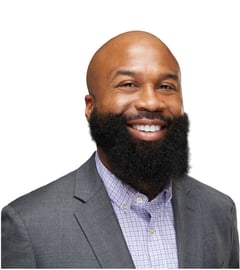
Derrick M. Bryan
Associate Professor and Department Chair
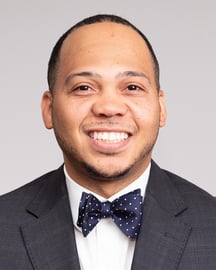
Michael Gumm
Adjunct Professor
Director of Admissions and Recruitment
Director of Admissions and Recruitment
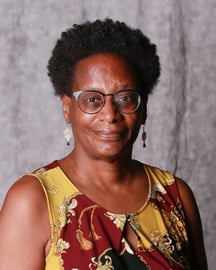
Cynthia M. Hewitt
Associate Professor
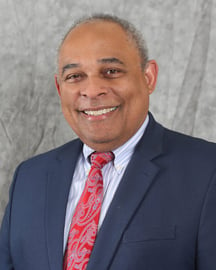
Michael E. Hodge
Professor

Regine O. Jackson
Professor/Division Dean
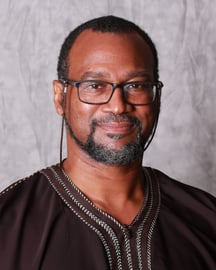
Mansa B. King
Associate Professor
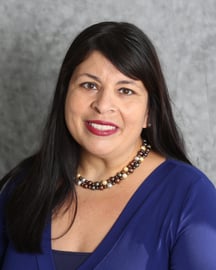
Marisela Martinez-Cola
Assistant Professor
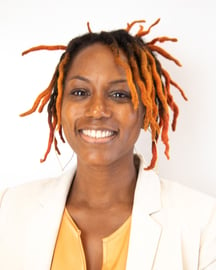
Taura Taylor
Assistant Professor
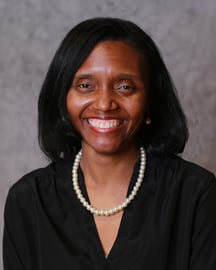
Adria N. Welcher
Associate Professor
.jpg?width=800&name=sociology-2-1024x682%20(1).jpg)